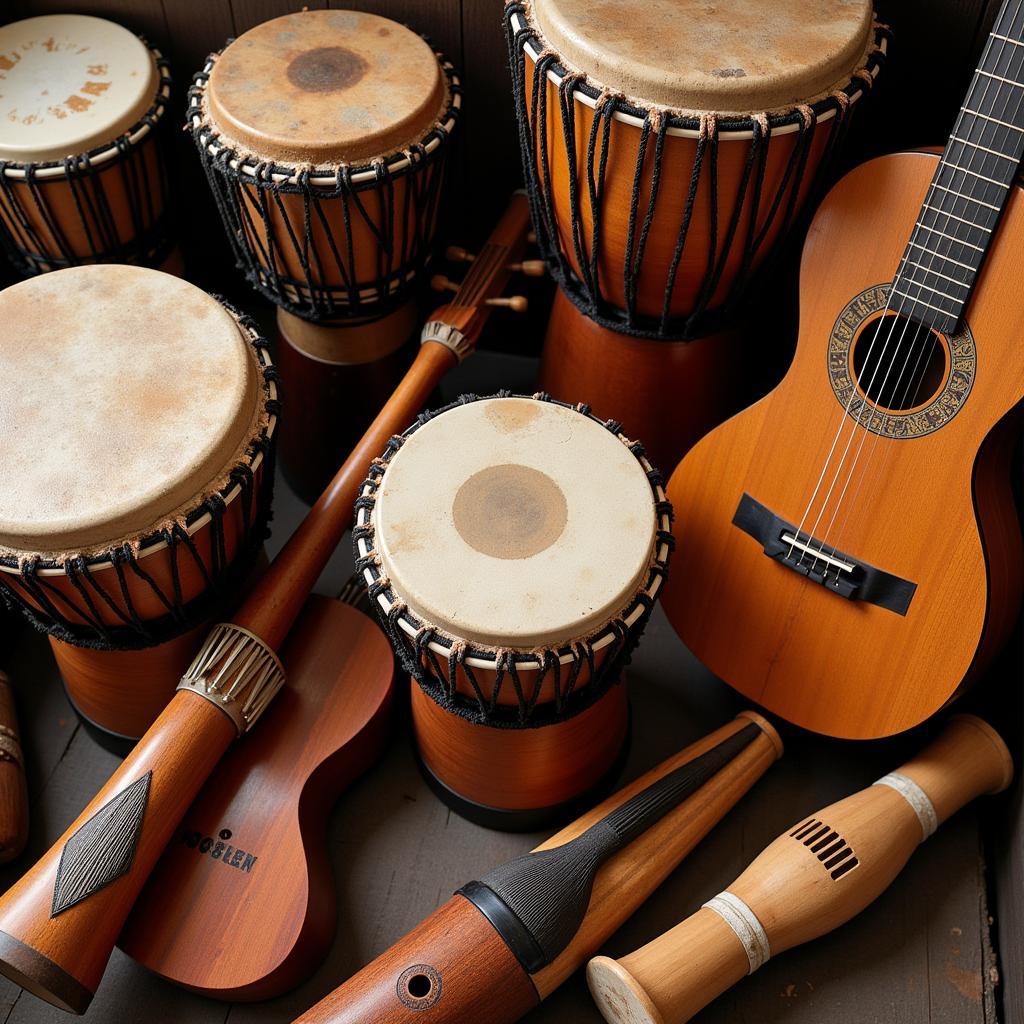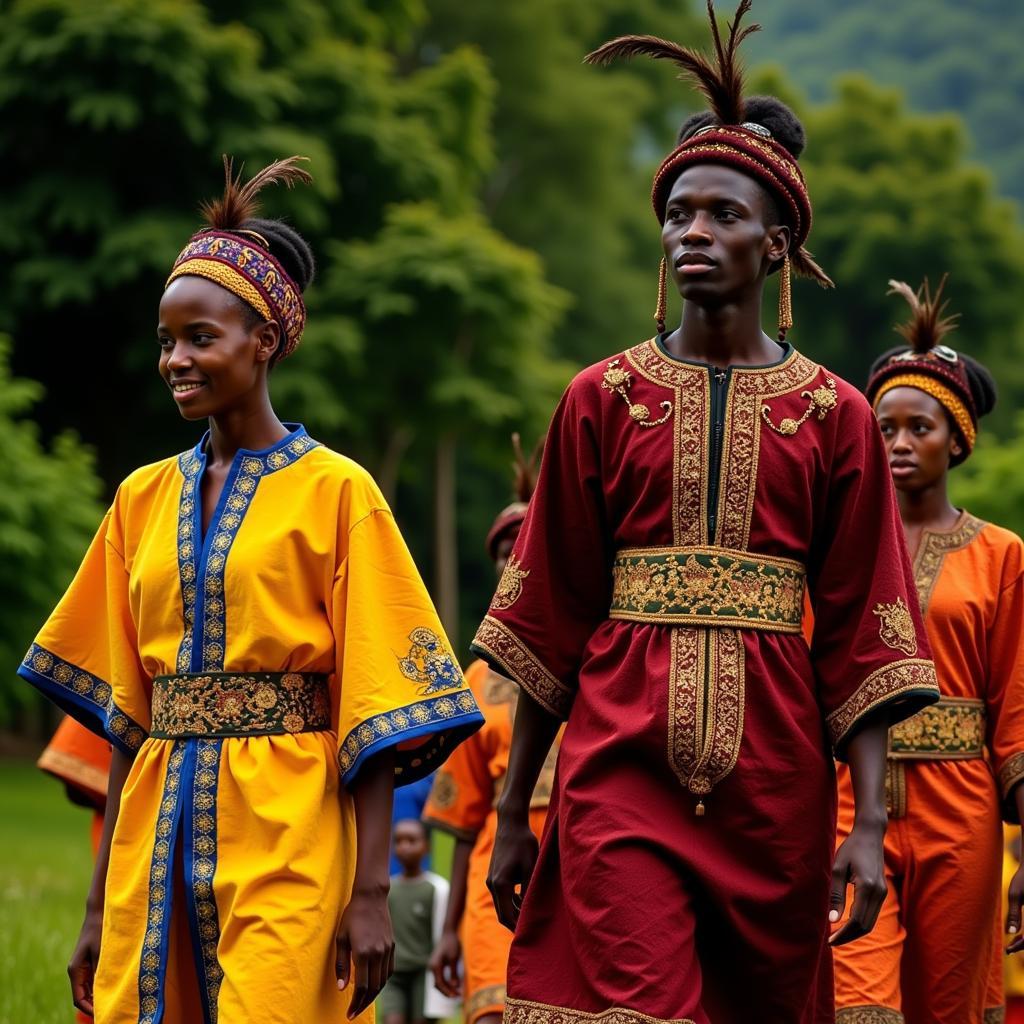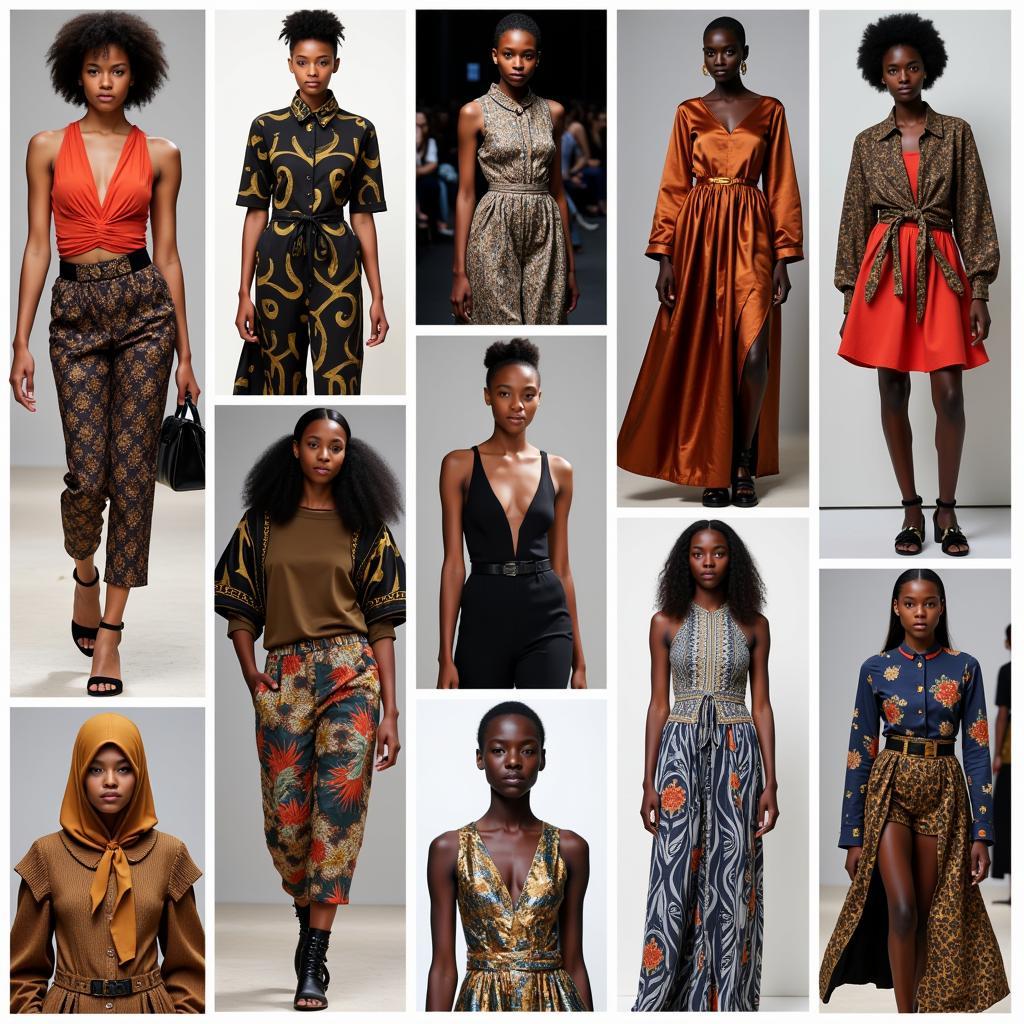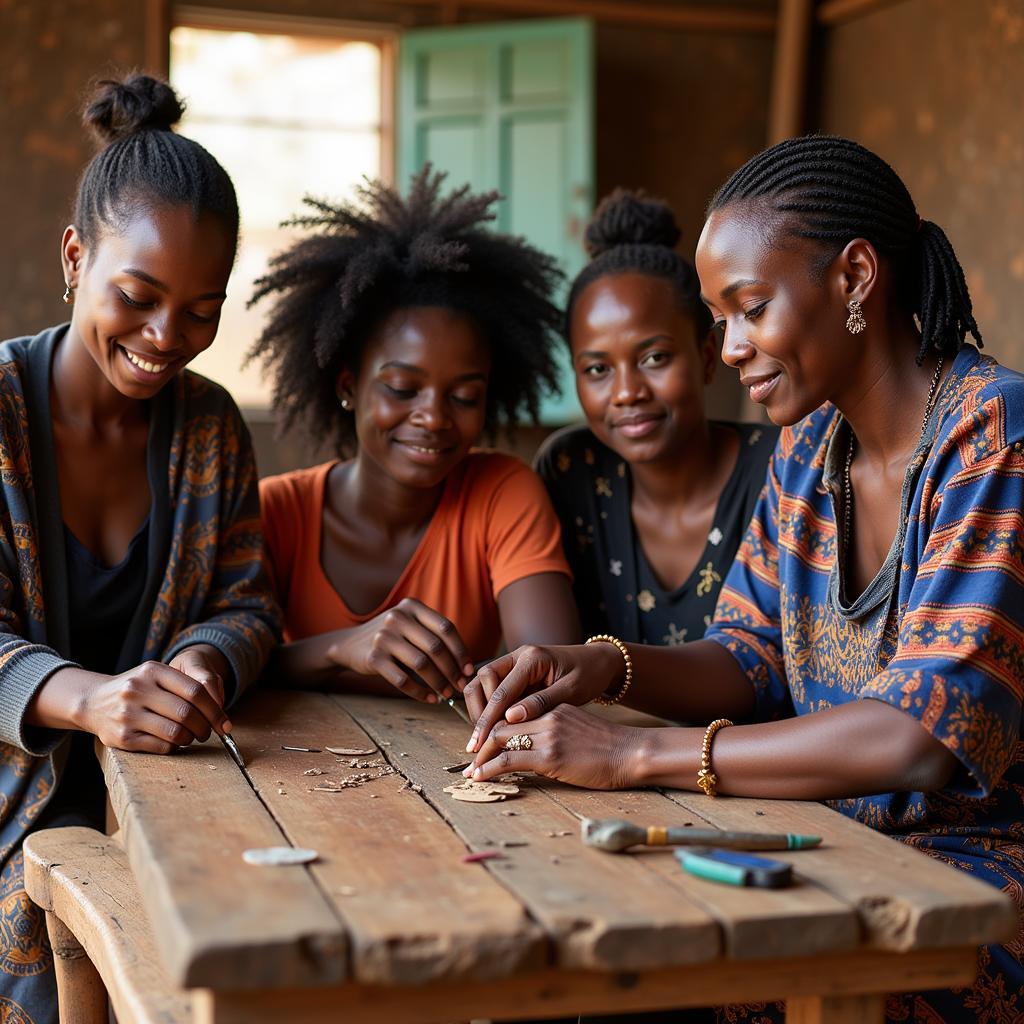Unveiling the Power of African Feminist Dystopias
African feminist dystopias have emerged as a powerful force in contemporary literature, challenging societal norms and envisioning alternative futures. These thought-provoking narratives explore themes of gender inequality, political corruption, environmental degradation, and the resilience of women in the face of oppression. Through their speculative worlds, African feminist authors offer critical commentary on the present while inspiring readers to imagine a more just and equitable world.
Reimagining Power Structures: Subverting Patriarchy and Colonial Legacies
One of the key characteristics of African feminist dystopias is their deconstruction of patriarchal power structures. Authors often depict societies where women are subjugated, their voices silenced, and their bodies controlled. These dystopian settings serve as stark warnings of the dangers of unchecked patriarchy and the urgent need for gender equality.
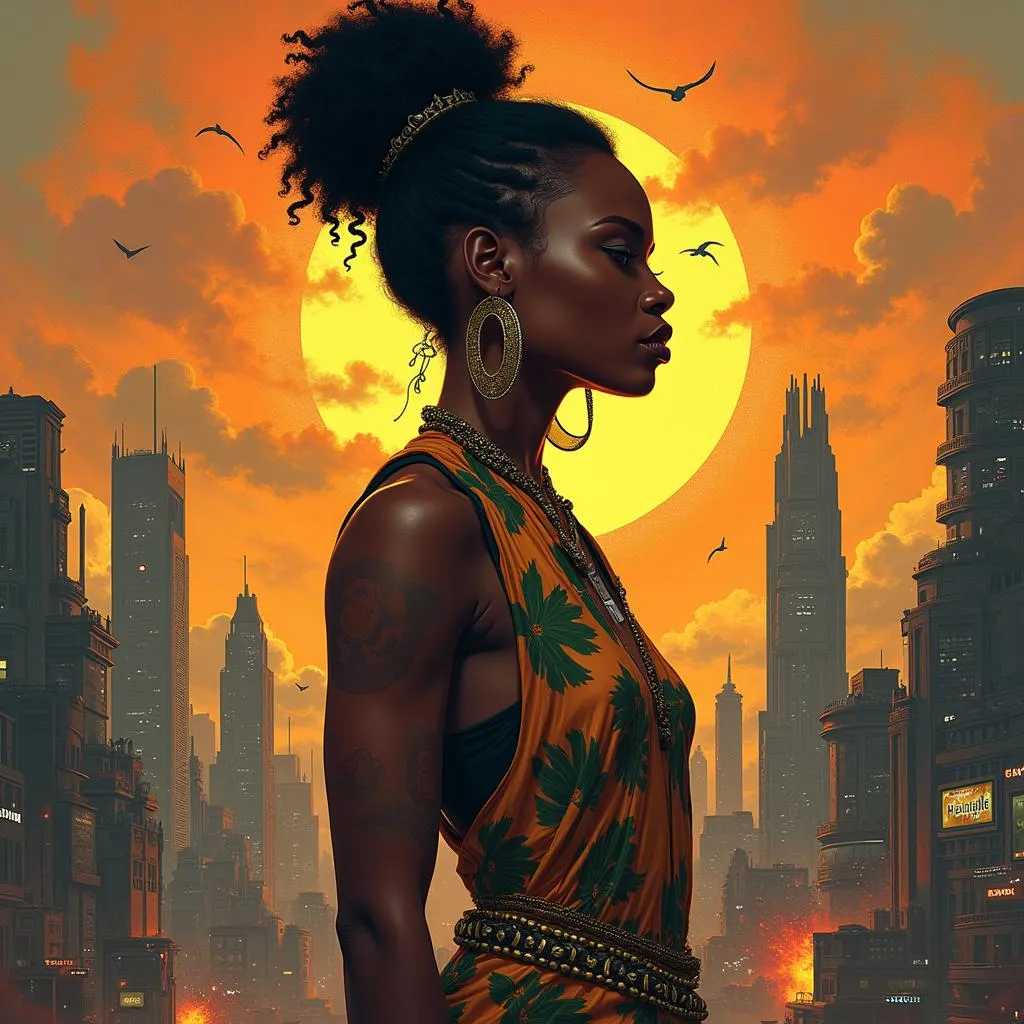 Book cover of an African feminist dystopia novel
Book cover of an African feminist dystopia novel
Moreover, African feminist dystopias often engage with the enduring legacies of colonialism. They highlight the ways in which colonial powers have exploited African resources, disrupted traditional social structures, and imposed Western ideals that perpetuate gender inequality. By reimagining history and speculating on alternative futures, these narratives challenge dominant narratives and reclaim agency for African women.
Environmental Justice and the Interconnectedness of Oppressions
Another prominent theme in African feminist dystopias is the intersection of gender inequality and environmental degradation. Authors often depict worlds ravaged by climate change, pollution, and resource scarcity, where women and marginalized communities bear the brunt of the ecological crisis.
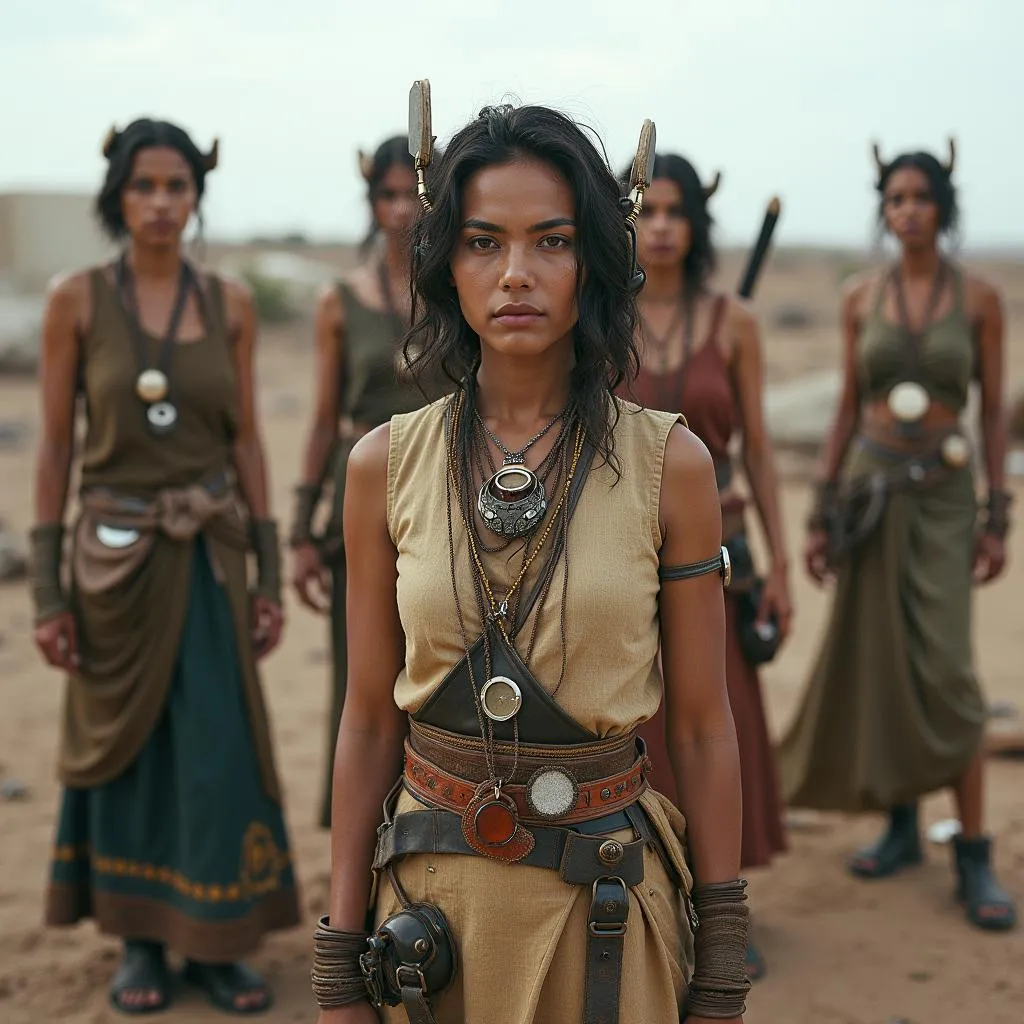 A scene from an African feminist dystopia novel depicting an environmental crisis
A scene from an African feminist dystopia novel depicting an environmental crisis
These narratives emphasize the interconnectedness of social justice and environmental sustainability, arguing that true liberation cannot be achieved without addressing both issues simultaneously.
Resistance, Resilience, and Visions of Hope
Despite the bleak settings and often harrowing experiences of their characters, African feminist dystopias are not devoid of hope. They celebrate the resilience of women, their ability to resist oppression, and their unwavering spirit in the face of adversity.
“African feminist dystopias are not simply about despair,” says Dr. Amina Mama, a renowned scholar of African literature. “They are about the power of imagination, the strength of community, and the enduring fight for a better future.”
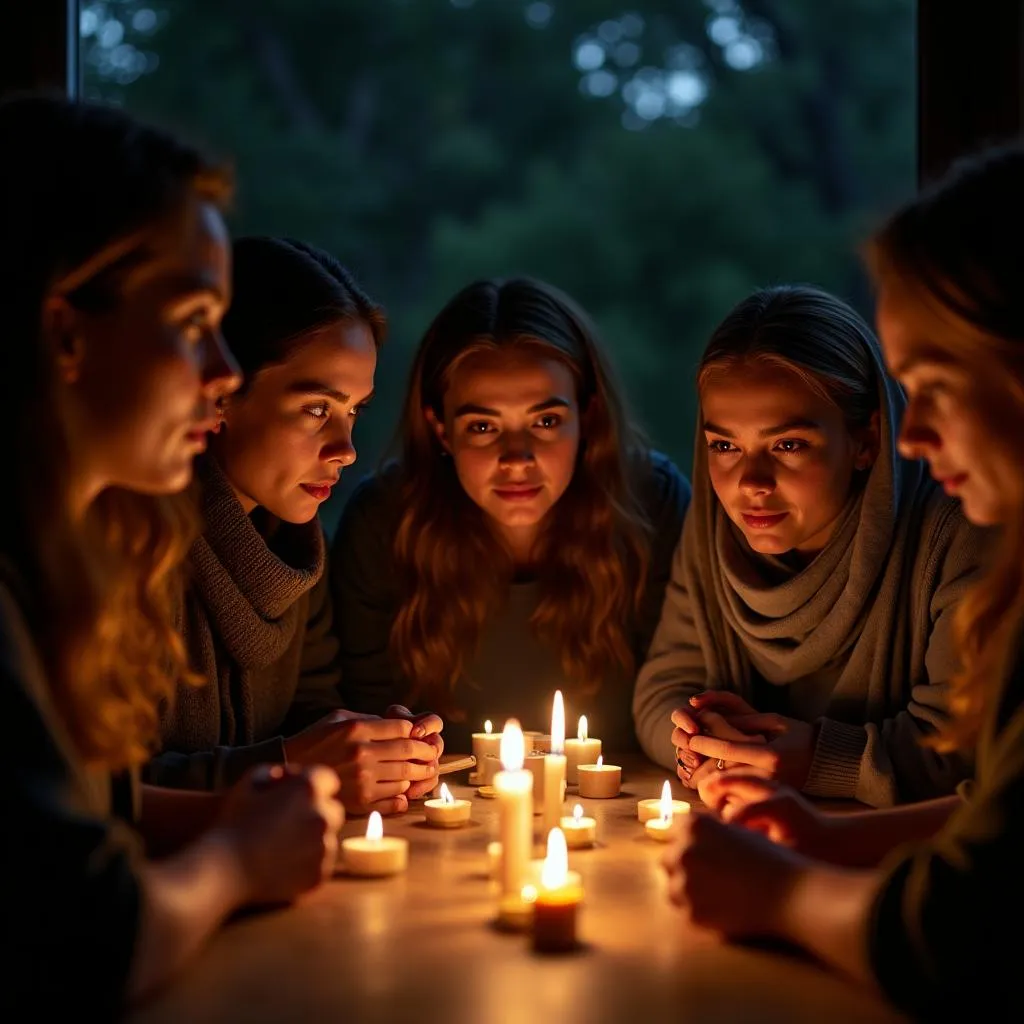 A scene from an African feminist dystopia novel showing community resistance
A scene from an African feminist dystopia novel showing community resistance
These narratives often feature strong female protagonists who challenge societal norms, forge alliances with other women, and fight for their own liberation and that of their communities. By showcasing acts of resistance, both individual and collective, African feminist dystopias offer glimpses of hope and inspire readers to envision and work towards a more just and equitable world.
Conclusion: A Call to Action
African feminist dystopias are a powerful and thought-provoking genre that offers a unique perspective on the challenges and possibilities of our time. By exploring themes of gender inequality, political corruption, environmental degradation, and the resilience of women, these narratives urge us to critically examine the world around us and to envision alternative futures. They remind us that the fight for social justice is ongoing and that we all have a role to play in creating a more equitable and sustainable world.
